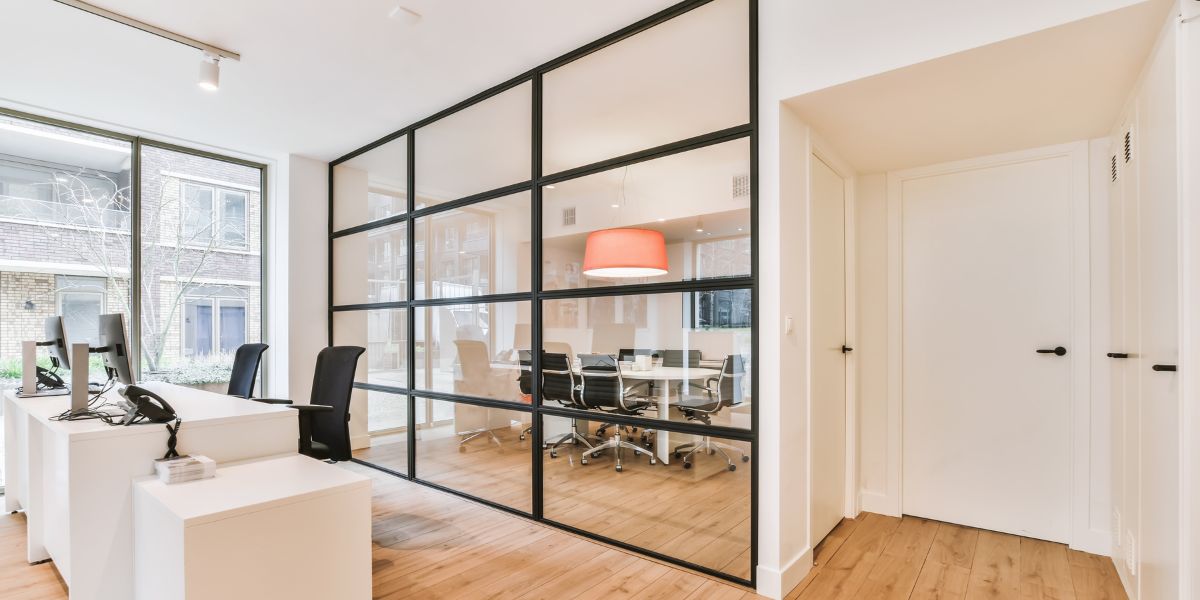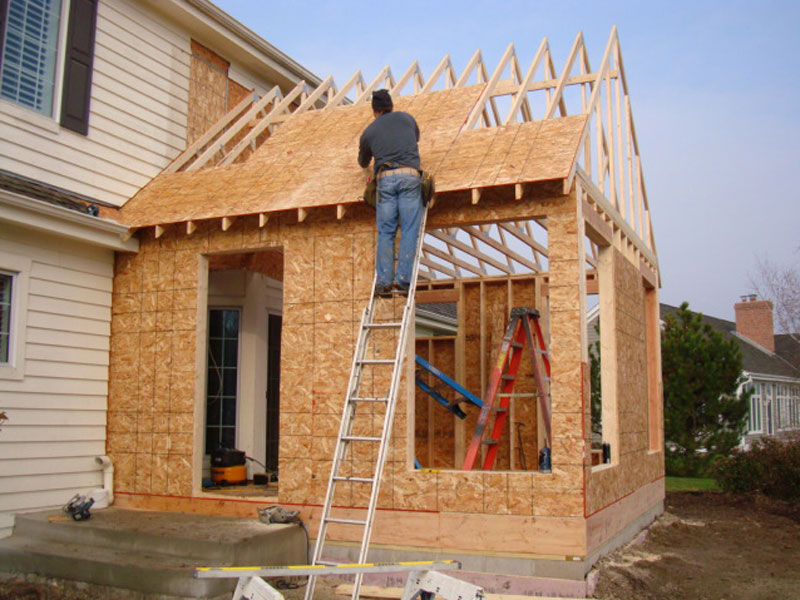Buying a house requires a lot of time and effort, but these 10 steps can help make the home buying process manageable and help you make the best decisions possible. Step 1: Start Your Research Early. As soon as you can, start reading Web sites, newspapers, and magazines that have real estate listings. Make a note of particular homes you are interested in and see how long they stay on the market. Also, note any changes in asking prices.
You’ve found your dream house. Now what? These handy checklists will help you get through every step of buying a home—with less anxiety and expense.
The Difference Between a Loan Officer and Mortgage Broker What is a Loan Officer? According to Forbes.com, a loan officer’s job is to accept an application that the borrower has filled out, and then hand it off to the underwriting department. “An independent loan originator, on the other hand, typically renders more services to the borrower, including things like advising the client about the best loans available for their specific purposes, gathering required documentation throughout the process, ordering the appraisal and communicating directly with the underwriter to ensure that the loan gets approved,” writes Forbes. What is an Underwriter? According to Loanvest.com, a mortgage loan underwriter is tasked with carefully analyzing every bit of information the loan officer asks you to provide as part of the loan application process, as well as the collection of verification documents that you may be required to send in later to substantiate the information you’ve already provided. The underwriter will then attempt to verify two primary things in order to meet the bank’s criteria for offering you a loan: general creditworthiness and debt-to-income ratio. The Loan Process A large bank or credit union relies on the underwriter, or underwriting department, to handle all of the above tasks—and these departments aren’t working as representatives for the borrower. The takeaway for the consumer: Mortgage rates available at an independent loan originator, whether a broker or a small banker, will not be higher than those offered through a larger bank. In fact, in many cases, the rates may be somewhat lower, partly because independent mortgage brokers typically have more loan sources available to them compared to the big banks, which usually just have a handful of loan products to offer prospective homeowners, according to Forbes.com. “For instance, mathematically, paying 1% of the loan amount to reduce the rate by .25% will break even in about four years, but it seldom makes sense unless the borrower plans to use the lower rate to pay off the loan faster. As far as fees are concerned, you have to make a distinction between lender fees (underwriting, document prep, processing, etc.) and third-party fees (title, escrow, appraisal, recording, notary). Some lenders and brokers have very high lender fees, while others may have higher rates instead,” says Forbes.com. What is a Mortgage Broker? A mortgage broker is an independent real-estate financing professional who specializes in the origination of residential mortgage loans. Mortgage brokers normally pass the actual funding and servicing of loans on to wholesale lending sources. Getting a mortgage brokers license is not easy and also requires yearly continuing education. A mortgage broker is also an independent contractor working with, on average, as many as forty lenders at any one time, claims the EducatedMortgageServices.com website. “By combining professional expertise with direct access to hundreds of loan products, your broker provides the most efficient way to obtain financing tailored to your specific financial goals,” according to EducatedMortgageServices.com. What top factors determine if someone gets a loan? Most people that are buying a home require a mortgage to do so. Whether you are buying a home in Wilmington, Panama City Beach,
The Buying House Directory Bangladesh began with one simple principle in mind: to make it easier for you to get the custom built buyinghouse business information .
Buying A Home Home Buyer Tips The Difference Between a Loan Officer and Mortgage Broker What is a Loan Officer? According to Forbes.com, a loan officer’s job is to accept an application that the borrower has filled out, and then hand it off to the underwriting department. “An independent loan originator, on the other hand, typically renders more services to the borrower, including things like advising the client about the best loans available for their specific purposes, gathering required documentation throughout the process, ordering the appraisal and communicating directly with the underwriter to ensure that the loan gets approved,” writes Forbes. What is an Underwriter? According to Loanvest.com, a mortgage loan underwriter is tasked with carefully analyzing every bit of information the loan officer asks you to provide as part of the loan application process, as well as the collection of verification documents that you may be required to send in later to substantiate the information you’ve already provided. The underwriter will then attempt to verify two primary things in order to meet the bank’s criteria for offering you a loan: general creditworthiness and debt-to-income ratio. The Loan Process A large bank or credit union relies on the underwriter, or underwriting department, to handle all of the above tasks—and these departments aren’t working as representatives for the borrower. The takeaway for the consumer: Mortgage rates available at an independent loan originator, whether a broker or a small banker, will not be higher than those offered through a larger bank. In fact, in many cases, the rates may be somewhat lower, partly because independent mortgage brokers typically have more loan sources available to them compared to the big banks, which usually just have a handful of loan products to offer prospective homeowners, according to Forbes.com. “For instance, mathematically, paying 1% of the loan amount to reduce the rate by .25% will break even in about four years, but it seldom makes sense unless the borrower plans to use the lower rate to pay off the loan faster. As far as fees are concerned, you have to make a distinction between lender fees (underwriting, document prep, processing, etc.) and third-party fees (title, escrow, appraisal, recording, notary). Some lenders and brokers have very high lender fees, while others may have higher rates instead,” says Forbes.com. What is a Mortgage Broker? A mortgage broker is an independent real-estate financing professional who specializes in the origination of residential mortgage loans. mortgage brokers normally pass the actual funding and servicing of loans on to wholesale lending sources. Getting a mortgage brokers license is not easy and also requires yearly continuing education. A mortgage broker is also an independent contractor working with, on average, as many as forty lenders at any one time, claims the EducatedMortgageServices.com website. “By combining professional expertise with direct access to hundreds of loan products, your broker provides the most efficient way to obtain financing tailored to your specific financial goals,” according to EducatedMortgageServices.com. What top factors determine if someone gets a loan? Most people that are buying a home require a mortgage to do
Buying a home beats renting in three-quarters of local authority areas across Britain located outside London, a report sugges…
How We Help ?. We have put together heaps of information about buying a house in New Zealand – all the house buying information you need to know, when you need to know it.
If you’re considering buying land in Texas there are some differences to buying a house or a property with an “improvement” on it. It’s actually much simpler but you should know the basics before jumping in.
Home Buyer Tips The Difference Between a Loan Officer and Mortgage Broker What is a Loan Officer? According to Forbes.com, a loan officer’s job is to accept an application that the borrower has filled out, and then hand it off to the underwriting department. “An independent loan originator, on the other hand, typically renders more services to the borrower, including things like advising the client about the best loans available for their specific purposes, gathering required documentation throughout the process, ordering the appraisal and communicating directly with the underwriter to ensure that the loan gets approved,” writes Forbes. What is an Underwriter? According to Loanvest.com, a mortgage loan underwriter is tasked with carefully analyzing every bit of information the loan officer asks you to provide as part of the loan application process, as well as the collection of verification documents that you may be required to send in later to substantiate the information you’ve already provided. The underwriter will then attempt to verify two primary things in order to meet the bank’s criteria for offering you a loan: general creditworthiness and debt-to-income ratio. The Loan Process A large bank or credit union relies on the underwriter, or underwriting department, to handle all of the above tasks—and these departments aren’t working as representatives for the borrower. The takeaway for the consumer: Mortgage rates available at an independent loan originator, whether a broker or a small banker, will not be higher than those offered through a larger bank. In fact, in many cases, the rates may be somewhat lower, partly because independent mortgage brokers typically have more loan sources available to them compared to the big banks, which usually just have a handful of loan products to offer prospective homeowners, according to Forbes.com. “For instance, mathematically, paying 1% of the loan amount to reduce the rate by .25% will break even in about four years, but it seldom makes sense unless the borrower plans to use the lower rate to pay off the loan faster. As far as fees are concerned, you have to make a distinction between lender fees (underwriting, document prep, processing, etc.) and third-party fees (title, escrow, appraisal, recording, notary). Some lenders and brokers have very high lender fees, while others may have higher rates instead,” says Forbes.com. What is a Mortgage Broker? A mortgage broker is an independent real-estate financing professional who specializes in the origination of residential mortgage loans. Mortgage brokers normally pass the actual funding and servicing of loans on to wholesale lending sources. Getting a mortgage brokers license is not easy and also requires yearly continuing education. A mortgage broker is also an independent contractor working with, on average, as many as forty lenders at any one time, claims the EducatedMortgageServices.com website. “By combining professional expertise with direct access to hundreds of loan products, your broker provides the most efficient way to obtain financing tailored to your specific financial goals,” according to EducatedMortgageServices.com. What top factors determine if someone gets a loan? Most people that are buying a home require a mortgage to do so. Whether you
How to Buy a House in 7 Steps. Buying a house takes time. And no house—even that perfectly cute bungalow on the corner with the fenced-in backyard—is worth jumping into before you’re ready. You know what’s more important than the house you buy? Set realistic expectations for the home-buying process. calculate how much home you can afford and how much to save for a down payment. Know how to find the best real estate agent. Learn how to buy a house with confidence.
5 Bedroom Home Larnaka , Mazotos | ID. If you are looking for peace and tranquility, this 5 bedroom, 5 bathroom property is exactly for you. This beautiful house sits on a plot of 2342 m2,… Read more ». Loucas Toumazi of Buy Home Estate Agency Cyprus. Lee Grant. We purchased our dream property through Buy Home in Limassol. Relocating from the UK, Loucas our property consultant provided us with e…
Buying Real Estate Real Estate ABC – Information on Buying and Selling A Home Interest Rate Report – Jul 2015. Long-term mortgage interest rates continued their move to record highs for 2015, according to data from mortgage finance company freddie mac. The college drive albertsons store property has been sold to a group of local investors for $9.75 million. The deal included … Buying A Home Home Buyer Tips The Difference Between a Loan Officer and Mortgage Broker What is a Loan Officer? According to Forbes.com, a loan officer’s job is to accept an application that the borrower has filled out, and then hand it off to the underwriting department. “An independent loan originator, on the other hand, typically renders more services to the borrower, including things like advising the client about the best loans available for their specific purposes, gathering required documentation throughout the process, ordering the appraisal and communicating directly with the underwriter to ensure that the loan gets approved,” writes Forbes. What is an Underwriter? According to Loanvest.com, a mortgage loan underwriter is tasked with carefully analyzing every bit of information the loan officer asks you to provide as part of the loan application process, as well as the collection of verification documents that you may be required to send in later to substantiate the information you’ve already provided. The underwriter will then attempt to verify two primary things in order to meet the bank’s criteria for offering you a loan: general creditworthiness and debt-to-income ratio. The Loan Process A large bank or credit union relies on the underwriter, or underwriting department, to handle all of the above tasks—and these departments aren’t working as representatives for the borrower. The takeaway for the consumer: mortgage rates available at an independent loan originator, whether a broker or a small banker, will not be higher than those offered through a larger bank. In fact, in many cases, the rates may be somewhat lower, partly because independent mortgage brokers typically have more loan sources available to them compared to the big banks, which usually just have a handful of loan products to offer prospective homeowners, according to Forbes.com. “For instance, mathematically, paying 1% of the loan amount to reduce the rate by .25% will break even in about four years, but it seldom makes sense unless the borrower plans to use the lower rate to pay off the loan faster. As far as fees are concerned, you have to make a distinction between lender fees (underwriting, document prep, processing, etc.) and third-party fees (title, escrow, appraisal, recording, notary). Some lenders and brokers have very high lender fees, while others may have higher rates instead,” says Forbes.com. What is a Mortgage Broker? A mortgage broker is an independent real-estate financing professional who specializes in the origination of residential mortgage loans. mortgage brokers normally pass the actual funding and servicing of loans on to wholesale lending sources. Getting a mortgage brokers license is not easy and also requires yearly continuing education. A mortgage broker is also an independent contractor working with, on
What to know before buying a house. Owning your own home is an enduring symbol of the American dream. It can also be an excellent long-term path to financial security by building equity in …
The Speaker of the House of Representatives, Yakubu Dogara, says vote buying has left Nigerians in a state of unmitigated dis…
Buying a house is one of the most significant decisions which one has to take in one’s life, and it is not so easy as it looks. Apart from arranging finance, it involves many other considerations including legal and emotional considerations. It is also costly to commit mistakes while buying a house, and one should avoid committing any mistake while buying a house.
Buying a house? loanDepot is a direct mortgage lender offering low rates on home loans, VA, FHA, ARM and Jumbo loans.
 Q. My husband and I are completely debt-free, and we’re saving up for our first house. We currently have about $90,000 in savings, and we’d like to buy a home
Q. My husband and I are completely debt-free, and we’re saving up for our first house. We currently have about $90,000 in savings, and we’d like to buy a home





 said negotiators are very close to agreement and that swift passage of the bill “sends a message to … as Congress seeks to …
said negotiators are very close to agreement and that swift passage of the bill “sends a message to … as Congress seeks to …
 Q. My husband and I are completely debt-free, and we’re saving up for our first house. We currently have about $90,000 in savings, and we’d like to buy a home
Q. My husband and I are completely debt-free, and we’re saving up for our first house. We currently have about $90,000 in savings, and we’d like to buy a home The College Drive Albertsons store property has been sold to a group of local investors for $9.75 million. The deal included …
The College Drive Albertsons store property has been sold to a group of local investors for $9.75 million. The deal included … Buying a home is a long, complicated process. But you can make your experience easier if you prepare way ahead of time. Here’s what you must do before you even buy a home. Mortgages.
Buying a home is a long, complicated process. But you can make your experience easier if you prepare way ahead of time. Here’s what you must do before you even buy a home. Mortgages.